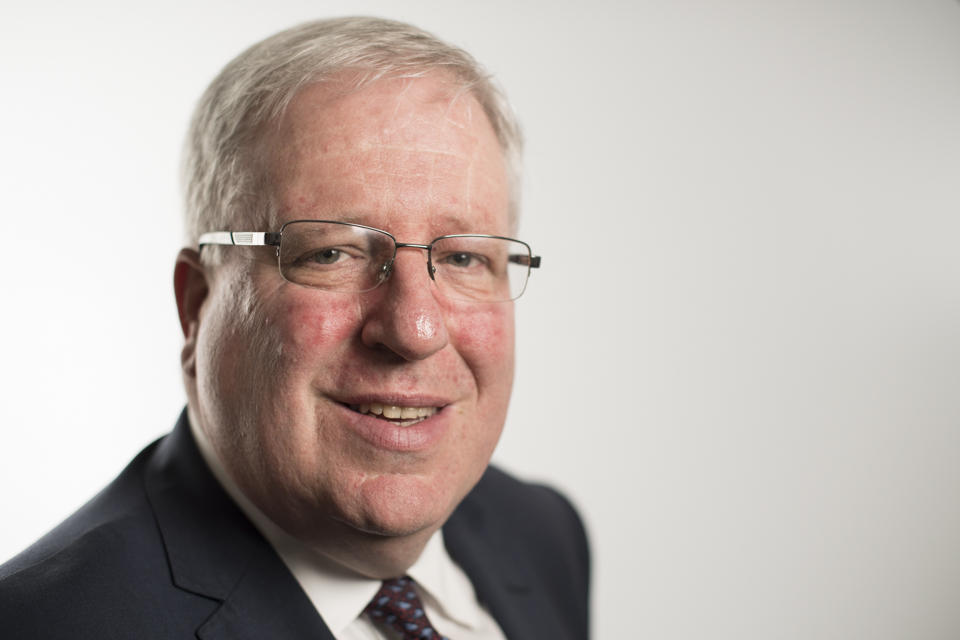EU Transport Council 20 March 2015
Overview of an EU Transport Council meeting where items discussed included the fourth railway package and an air transport agreement.

I attended the first Transport Council under the Latvian Presidency (the Presidency) in Brussels on Friday 13 March.
The first item on the agenda was a policy debate on the Fourth Railway Package. The Presidency sought further guidance on the market pillar of the package in order to reach their ambition of achieving a general approach by June. I set out the great success of our liberalised market and urged member states to grasp the opportunity of the market pillar to develop a true single market for rail and support a vibrant, competitive and sustainable rail sector across Europe.
The debate on the 3 key issues identified by the Presidency – the independence of infrastructure managers and ex-ante oversight role of regulatory bodies on appointments to infrastructure boards under the governance file and how to ensure non-discriminatory access to rolling stock under the public service obligation file – drew a split response.
On governance, I had strong support from a range of member states for the approach that a truly separated model was the most effective remedy against potential discrimination by the infrastructure manager towards the railway undertakings, and that additional regulation was not required in such cases.
On providing non-discriminatory access to rolling stock to ensure an effective opening of the market, I shared our positive experience of establishing a leasing market. Whilst all member states recognised the need to address this barrier, many member states pressed for flexibility to choose from a ‘toolbox’ of options.
There was a call for a progressive move towards competitive tendering to avoid market failure from a sudden change, and mixed views on reciprocity measures if a long transition period were granted. The differing needs of member states under fierce competition from bordering third countries was highlighted and consideration of the social dimension of new operators entering the market was requested.
The Presidency presented a paper on EU competitiveness and transport policy, focussing particularly on the funding opportunities from the new European Fund for Strategic Investments (EFSI). Commissioner Bulc then stressed 3 key principles: firstly, the need to invest in infrastructure and the shortfall within the EU for such activities; secondly, the need to embrace innovation for example, autonomous vehicles; and, thirdly, the need to remove technical and legal barriers to enable the transport sector to grow.
Other member states views included the need to invest in innovation; the importance of the EFSI fund; less regulatory burdens; and state aid rules becoming more permissive to help ensure that there was a level playing field with non-European countries.
I emphasised the importance of preparing projects so that they were ready to begin by the end of the year and called upon the commissioner to return to council to outline which transport projects were being funded by EFSI so that the existing grant mechanisms could be reviewed in light of developments there. Commissioner Bulc agreed to my request to report back on EFSI transport funding and repeated that her key mission was to ensure that EU transport policy was built around citizens and industry needs.
Under any other business the Presidency informed Council about the forthcoming Asia European meeting of transport ministers on 29 to 30 April in Riga, noting that increasing trade between Europe and Asia called for enhanced connectivity.
The Presidency updated council on the outcome of the Conference on Remotely Piloted Aircraft Systems on 5 to 6 March in Riga, drawing attention to the Riga Declaration which summarised the key principles of developing a risk-based and light-touch approach to regulation but with sufficient speed to provide the necessary investment conditions in this fast-developing sector.
Commissioner Bulc updated council on actions taken following the downing of aircraft MH17 over Ukraine in July 2014, and encouraged member states to support the European Aviation Safety Agency’s mechanism for sharing civil and military risk assessments of civil aviation flights over conflict zones.
The commission delivered a presentation on their Energy Union Communication of 25 February, emphasising that the goal of decarbonised transport called for a gradual transformation of the entire transport system. The commission believe that their planned road package, to be published in 2016, will address reducing CO₂ emissions from vehicles felt that success would depend upon member state actions, not least in implementing alternative fuels infrastructure and supporting local authority sustainable urban mobility plans.
Lastly, France and Germany called for a comprehensive air transport agreement between the EU and the 6 members of the Gulf Cooperation Council (GCC) as a means to persuade the GCC to adopt ‘fair competition’ principles. Germany emphasised that if the conditions of fair competition and limited market opening were achieved, she would be willing to consider a mandate for a comprehensive agreement with the GCC. Both member states pressed their support for the commission to bring forward a revision or replacement of Regulation (EC) 868/2004 on protection against subsidisation and unfair pricing.
Several member states supported this position whilst the need to address distorted working conditions within the EU was highlighted. I advocated the wider benefits of liberalised international air transport for both business and the consumer in UK and across Europe through the creation of jobs and growth, better regional connectivity and improved customer choice and quality. I noted the potential benefits of a comprehensive air transport agreement and a review of the unfair pricing regulation but urged member states not to lose sight of the value of Europe’s relationship with the GCC states in air transport which extends to purchases from EU manufacturers.
The commission suggested it may proceed with a comprehensive air transport agreement as a means to send a strong and united EU position to the GCC states whilst its work would continue on bringing forward a revised or entirely new Regulation 868/2004 with sufficient teeth to be effective.